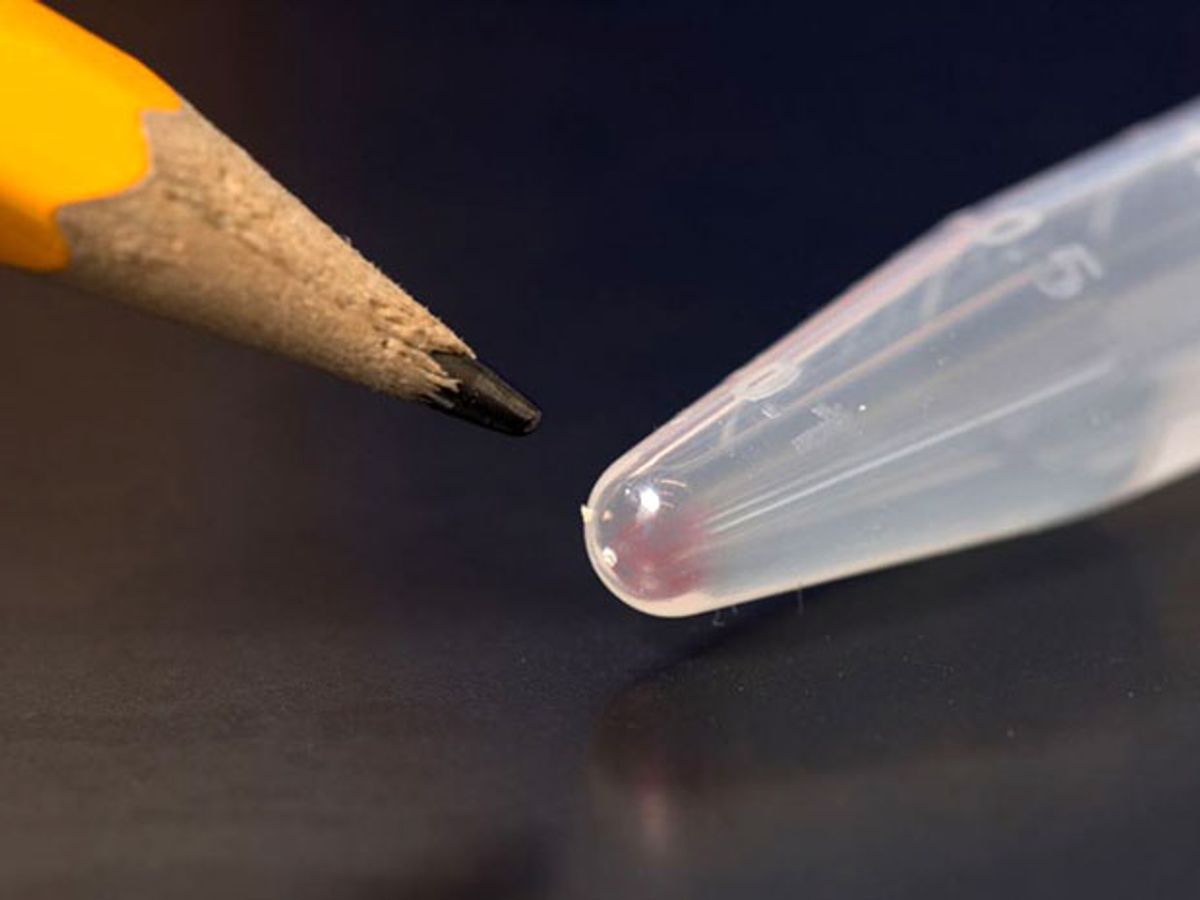Three weeks ago, we reported on a meeting of the minds in Virginia, where experts discussed the plausibility and requirements of using DNA as a hard drive. As the demand for data storage steadily grows, especially in biomedicine, the dense nucleic acid provides a promising new data depot.
At the time of the meeting, a source told us the attendees concluded that the “ambitious goal” of a prototype DNA storage machine was “possible” within five to seven years. Now, it seems they were a bit conservative with that timeline: Yesterday, researchers at Microsoft and the University of Washington announced a new record for the amount of data stored in (and read back out of) synthetic DNA strands.
In a dab of DNA smaller than the tip of a pencil, the team stored 200 megabytes of data—a thousand times more DNA storage capacity than was possible a year ago, they say. “Think of the amount of data in a big data center compressed into a few sugar cubes,” Microsoft proclaimed in a press release. “Or all the publicly accessible data on the Internet slipped into a shoebox.”
In those helical threads of biological material, the team encoded an eclectic range of information: A high-definition version of the popular Rube Goldberg Machine video by the band OK Go!, other forms of digital art, the Universal Declaration of Human Rights in more than 100 languages, the top 100 books of Project Gutenberg, and a seed database from the nonprofit Crop Trust.
At this rate, someday soon we’ll all be reaching over our thumb drives to grab a test tube.
IEEE Spectrum’s Eliza Strickland explains how DNA data storage works here.
Megan Scudellari is an award-winning freelance journalist based in Boston, Massachusetts, specializing in the life sciences and biotechnology. She was previously a health columnist for the Boston Globe and has contributed to Newsweek, Scientific American, and Nature, among others. She is the co-author of a college biology textbook, “Biology Now,” published by W.W. Norton. Megan received an M.S. from the Graduate Program in Science Writing at the Massachusetts Institute of Technology, a B.A. at Boston College, and worked as an educator at the Museum of Science, Boston.



